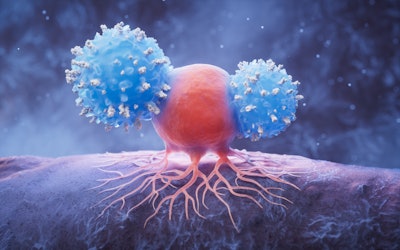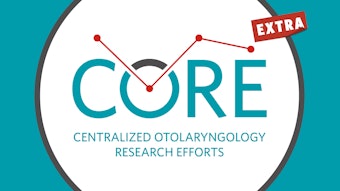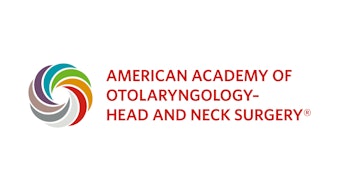Advanced-Stage Cutaneous Melanoma: Current Treatment and Future Directions
We review the history of immunotherapy, including the transition to neoadjuvant treatment, and explore future directions of immunotherapy in treating advanced melanoma.
Arielle Thal, MD, Liana Puscas, MD, and Vikas Mehta, MD, MPH, on behalf of the Head and Neck Surgery Education Committee

Ipilimumab
In 2011, ipilimumab was approved for use in metastatic melanoma based on the results of a Phase III randomized controlled trial showing improved overall survival.1 In 2015, it was approved for use in the adjuvant setting for patients with stage III disease because of data demonstrating improved recurrence free survival in this population. These results were promising, but there was a significant rate of adverse events resulting in discontinuation of treatment in over half of patients. The most common side effects included gastrointestinal, hepatic, and endocrine disturbances.2
Pembrolizumab/Nivolumab
Nivolumab was introduced into the treatment of advanced melanoma as second line treatment for patients who progressed through first line therapy.3 Later studies demonstrated improved outcomes for patients treated with pembrolizumab compared to ipilimumab with improved two-year survival (55% vs. 43%) and progression free survival (30% vs. 14%).4 With both agents showing promise in this setting and having different mechanisms of action, combination anti-PD1/anti-CTLA-4 therapy was assessed. This was done in a three-arm trial comparing ipilimumab alone, nivolumab alone, and ipilimumab/nivolumab in combination for patients with unresectable disease. Patients treated with nivolumab (in combination or alone) had improved progression free survival. Combination therapy was particularly beneficial for patients with PD-1 negative tumors. As a result of these studies, anti-PD1 with or without ipilimumab became the immunotherapy of choice for melanoma.5
Transition to Neoadjuvant Treatment
The rationale for neoadjuvant immunotherapy is based on the hypothesis that a more robust anti-tumor response is possible prior to resection due to the presence of an intact tumor microenvironment via tumor-infiltrating lymphocytes and intact lymph nodes. Based on this hypothesis, the SWOG Cancer Research Network trial tested neoadjuvant pembrolizumab against adjuvant pembrolizumab in patients with resectable Stage III/IV melanoma. The neoadjuvant group had improved two-year event free survival compared to the adjuvant group, 72% vs. 49%.6 The NADINA trial, which evaluated neoadjuvant ipilimumab/nivolumab versus adjuvant ipilimumab/nivolumab in this population, further supported the benefit of neoadjuvant therapy by showing an increase in event-free survival, 83.7% vs. 57.2%. There was also a positive correlation between the rate of pathologic response and recurrence free survival, indicating durable responses. Approximately 59% of patients had a major pathologic response which correlated with a 95.1% recurrence free survival at 12 months. Of note, adverse events were increased in the neoadjuvant group, 29.7% compared to 14.7%.7
Other anti-PD1 combination therapies in the neoadjuvant setting have been investigated to optimize responses and reduce adverse events. Relatlimab is a monoclonal antibody to LAG-3 and has been investigated in combination with nivolumab in the neoadjuvant setting. It appears to be better tolerated than ipilimumab/nivolumab and has comparable levels of pathologic response: 63% major pathologic response correlating to 100% recurrence free survival at 12 months.8 Although this is promising, the data supporting this combination is scarce, with only a few small studies available at the current time.
Conclusions and Future Directions
Currently, neoadjuvant nivolumab, with or without ipilimumab, is recommended for patients with resectable Stage III/IV disease. Ideal dosing for efficacy and reduction in adverse events is still under investigation.9 Patients should be counseled that adverse events are not uncommon and can be life threatening. Relatlimab in combination with anti-PD1 therapy is a promising alternative to ipilimumab with the potential for decreased toxicity. Fewer studies investigating this approach exist and therefore it is less commonly used at the current time. Pathologic response is clearly correlated with survival outcomes, and there is a need for early identification of responders vs. non-responders. The next step to understand responders vs nonresponders is to assess for evaluation of biomarker expression, with a specific interest in IFN-Y (DONIMI trial) and tumor mutational burden, based on previous data.10
Overall, this is an exciting shift in the paradigm of melanoma management with a quantum leap in survival from advanced disease. However, many questions still exist that necessitate further research including the optimal therapeutic combination and dose, pre-treatment identification of possible responders versus non-responders, evaluation of pathologic response, timing of surgery after neoadjuvant treatment, and indications for de-escalation of care in both the surgical and adjuvant setting.
References
- Amaria RN, Postow M, Burton EM, Tetzlaff MT, Ross MI, Torres-Cabala C, Glitza IC, et al. "Neoadjuvant Relatlimab and Nivolumab in Resectable Melanoma." Nature 611, no. 7934 (November 2022): 155–160.
- Blank CU, Lucas MW, Scolyer RA, van de Wiel BA, Menzies AM, Lopez-Yurda M, Hoeijmakers LL, et al. "Neoadjuvant Nivolumab and Ipilimumab in Resectable Stage III Melanoma." New England Journal of Medicine 391, no. 18 (November 7, 2024): 1696–1708.
- Eggermont AMM, Chiarion-Sileni V, Grob JJ, Dummer R, Wolchok JD, Schmidt H, Hamid O, et al. "Adjuvant Ipilimumab versus Placebo after Complete Resection of High-Risk Stage III Melanoma (EORTC 18071): A Randomised, Double-Blind, Phase 3 Trial." Lancet Oncology 16, no. 5 (May 2015): 522–530.
- Hodi FS, O'Day SJ, McDermott DF, Weber WR, Sosman JA, Haanen JB, Gonzalez R, et al. "Improved Survival with Ipilimumab in Patients with Metastatic Melanoma." New England Journal of Medicine 363, no. 8 (August 19, 2010): 711–723.
- Larkin J, Chiarion-Sileni V, Gonzalez R, Grob JJ, Cowey CL, Lao CD, Schadendorf D, et al. "Combined Nivolumab and Ipilimumab or Monotherapy in Untreated Melanoma." New England Journal of Medicine 373, no. 1 (July 2, 2015): 23–34.
- Patel SP, Othus M, Chen Y, Wright Jr GP, Yost KJ, Hyngstrom JR, Hu-Lieskovan S, et al. "Neoadjuvant-Adjuvant or Adjuvant-Only Pembrolizumab in Advanced Melanoma." New England Journal of Medicine 388, no. 9 (March 2, 2023): 813–823.
- Rozeman EA, Menzies AM, van Akkooi ACJ, Adhikari C, Bierman C, van de Wiel BA, Scolyer RA, et al. "Identification of the Optimal Combination Dosing Schedule of Neoadjuvant Ipilimumab Plus Nivolumab in Macroscopic Stage III Melanoma (OpACIN-neo): A Multicentre, Phase 2, Randomised, Controlled Trial." Lancet Oncology 20, no. 7 (July 2019): 948–960.
- Rozeman EA, Hoefsmit EP, Reijers ILM, Saw RPM, Versluis JM, Krijgsman O, Dimitriadis P, et al. "Survival and Biomarker Analyses from the OpACIN-neo and OpACIN Neoadjuvant Immunotherapy Trials in Stage III Melanoma." Nature Medicine 27, no. 2 (February 2021): 256–263.
- Schachter J, Ribas A, Long GV, Arance A, Grob JJ, Mortier L, Daud A, et al. "Pembrolizumab versus Ipilimumab for Advanced Melanoma: Final Overall Survival Results of a Multicentre, Randomised, Open-Label Phase 3 Study (KEYNOTE-006)." Lancet 390, no. 10105 (October 21, 2017): 1853–1862.
- Weber JS, D'Angelo SP, Minor D, Hodi FS, Gutzmer R, Neyns B, Hoeller C, et al. "Nivolumab versus Chemotherapy in Patients with Advanced Melanoma Who Progressed after Anti-CTLA-4 Treatment (CheckMate 037): A Randomised, Controlled, Open-Label, Phase 3 Trial." Lancet Oncology 16, no. 4 (April 2015): 375–384. https://doi.org/10.1016/S1470-2045(15)70076-8.


















